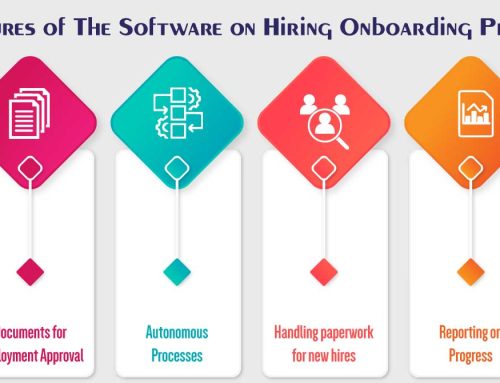How To Incorporate A Private Limited Company in Bangladesh
Incorporation is, by definition, legal entity setup that makes a business distinct from their owners. The corporate veil is a legal difference that protects a corporation’s owners and stockholders from responsibility. Because corporations are considered separate legal entities, they have many of the similar rights and obligations as individuals, including:
- Having to pay taxes
- Having a piece of real estate
- Suit is being filed.
- Being named in a lawsuit
- Borrowing money
Did you know? According to SBA estimates, over 627,000 new companies open each year.
Business entity setup is the most common type of business structure since they are recognized as legal business entities in most nations. They are commonly identified by their company names, which include a corporate identifier such as “incorporated” or “limited.”
KEY POINTS:
- Incorporation is the process by which a company is formally constitute and cause into existence by setting up a legal entity.
- Incorporation entails drafting a declaration as the articles of incorporation and listing all of the company’s shareholders that’s why it is also know as business entity setup.
- Limit liability means that the resources and cash flows of the corporate entity are kept distinct from those of the owners and shareholders once you set up legal entity.
Overview Of Entity Setup In Bangladesh
To set up legal entity, there are some regulations that are needed to be followed such as the entity type, maximum owners, and minimum number of creditors in Bangladesh. They are given below:
Entity Type
Maximum Foreign Ownership Allowed
Minimum Paid-up Capital
Minimum Number Of Shareholders
Private Limited Company
100%
$1
2
Public Limited Company
100%
$1
7
Subsidiary Company
51%-100%
$1
2
Branch Office
100%
No Capital
No Shareholders
Representative Office
100%
No Capital
No Shareholders
3 Reasons Why You Need To Setup Legal Entity
Apart from tax concerns, the realization that the owner is not legally accountable for the business’s activities is the most typical justification for incurring the cost of setting up a legal entity. However, let’s look at three more reasons why a corporation is a desirable vehicle for conducting business.
- Unlimited Life:
Unlike a private company or a partnership, the existence of a corporation is not dependent on the lives of a single individual or individuals. It can go on eternally until it achieves its goal, merges with another company, or declares bankruptcy. A legal entity setup could continue on indefinitely until otherwise stated. - Transferable Share:
It’s always comforting to know that your entity setup and business ownership interest can be easily sold, transferred, or passed down to another family member. The process of selling your shares in sole proprietorships can be time-consuming and expensive. - Ability to Raise Investment Capital:
Because of the restricted liability and easy transferability of shares, it is usually considerably effective to recruit new investors by setting up a legal entity. Stocks can be directly transfer to new investors.
A Step By Step Guideline For Outsourcing Entity Setup Services
- Name Clearance: To begin legal entity setup, you must obtain clearance from The Registrar of Joint Stock Companies and Firms for your company’s name (RJSC).
- Drafting Required Documents: Second, you must write the Articles of Association (AoA) and the Memorandum of Association (MoA). You must prepare it along with other forms as business entity setup standards for RSJC compliance while drafting them.
- Bank Account Opening: Third, if you plan to hire foreign personnel, you need to open a bank account in the planned company’s name and make an inward transaction of at least US$ 50,000.
- Submission Of documents To RSJC: You must submit all relevant documentation to the RJSC and pay the registration fees in this step of legal entity setup.
- Post-Registration Compliance: To set up legal entity, You must also complete the following licenses and registrations:5.1 Tax Identification Number
5.2 Tax Identification Number
Fun Fact: A single person can form a One Person Company (OPC) as a Private Limited Company and own all of the company’s shares.
Advantages of Company Incorporate
Incorporating your company offers several advantages that can positively impact your business. Here are some key advantages of company incorporation:
- Limited Liability Protection: One of the most significant advantages of incorporating a company is the limited liability protection it provides. In the event of legal disputes, debts, or financial liabilities, the shareholders’ personal assets are generally protect, and their liability is limit to their investment in the company.
- Enhanced Credibility and Professional Image: Incorporating your company often enhances its credibility and professional image in the eyes of customers, clients, suppliers, and investors. It can instill trust and confidence in your stakeholders, potentially attracting more business opportunities and partnerships.
- Access to Capital: Incorporation can facilitate the process of raising capital for your business. As a registered corporation, you have various options to raise funds, such as issuing shares or seeking investments from venture capitalists, angel investors, or institutional lenders.
- Perpetual Existence: Unlike sole proprietorships or partnerships, which are typically tie to the lifespan of the owners, a corporation has perpetual existence. Incorporating your company allows it to continue operations even in the event of changes in ownership or the departure of key individuals.
- Tax Advantages and Deductible Expenses: Incorporating a company can offer potential tax advantages. Corporate entities are subject to different tax rates and deductions compared to individuals. Consult with a tax professional to understand the specific tax benefits and obligations related to incorporating your company.
Tips for Company Incorporate
Incorporating a company involves legal and administrative processes to establish a separate legal entity for your business. Here are some tips to guide you through the company incorporation process:
- Understand the Different Business Structures: Familiarize yourself with various business structures, such as sole proprietorship, partnership, limited liability company (LLC), and corporation. Each structure has its own advantages, disadvantages, and legal requirements.
- Research and Choose a Business Name: Selecting a unique and suitable business name is important. Conduct a thorough search to ensure your chosen name is not already in use and does not violate any trademark or intellectual property rights.
- Determine the Jurisdiction and Incorporation Requirements: Decide on the jurisdiction where you want to incorporate your company. Research the specific requirements and regulations of that jurisdiction regarding company incorporation, such as minimum capital requirements, residency requirements, licensing, and permits.
Ending Words
Our entity setup services effectively construct a protective bubble of restricted liability surrounding a company’s shareholders and directors, sometimes referred to as a corporate veil. As a result, once setting up a legal entity is complete, we enable the incorporated business to take the risks that allow it to expand without subjecting the shareholders, owners, and directors to personal financial obligation beyond their initial commitments. So, contact us today for your company incorporation needs!





